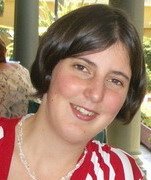In many of our sessions, particularly Brad Arden’s, it has been emphasised that everyone can be a leader. And not only that, but that everyone at a point in their working lives will be required to lead. When Eileen Maleka from CCDU was doing her workshop with us, we each picked a piece of paper with a skill on it at random from a packet and spent five minutes thinking about whether we felt we had that skill. To my surprise, I got ‘leadership’, something I do not feel comes naturally to me. But during this course, I have begun to realise that there are many ways to lead; while the old philosophy that such people are born, not made, is no longer recognised as true. Everyone has the capacity that can be developed and expressed in his or her personal style.
Today, Kuseni Dlamini from Richards Bay Coal Terminal spoke about the power of personal excellence to transform our environment. To mobilise change in South Africa and on the African continent, he emphasised that it is necessary to foster a culture of achievement and an “I can” attitude rather than one of blame. Beginning the shift begins with ourselves, and by committing to being excellent in all that we do, it will inspire others to do the same. Everyone can lead by example. Benjamin Zander (the orchestra conductor that I wrote about in a previous post) leads by being passionate about what he does, and through this he encourages passion in those around him. The author Marianne Williamson writes: “We were born to make manifest the glory of God within us. It is not just in some of us, it is in everyone, and as we let our own light shine we unconsciously give others permission to do the same.”
The input from the workshops had opened my mind to think more broadly rather than traditionally about leadership, and encouraged me to recognise my personal potential that can only grow by being developed and nurtured.
This blog reflects on life at work at comments on the latest news that shapes my 9-5 working day in a Corporate Communications consultancy.
About Me
- Susan Arthur
- I am a born and bred South African who has always loved to read and write. As a child my mother used to read to me and my siblings, from classics like the “Lord of the Rings” but later also from her own stories. She would write children’s stories and then use us as her test audience, but I loved to hear what she had written long after my siblings had tired of it. So I grew up in an environment of reading and writing, which inspired my love of these things. I hope to write a great book some day, and have learnt first hand the determination and will that it takes. My love of English inspired me to continue my study of it at university. I majored in Law and English in a BA degree at UCT where I found that I took to English much more than law. I enjoyed learning about South Africa’s history and the development of our liberal Constitution, which increasingly made me committed to the hope this country has for the future. Ideally, I’d like to find myself in a job where I am able to write; that allows a good mix of time spent with people and being able to work on my own.
Wednesday, 25 April 2007
Subscribe to:
Post Comments (Atom)

2 comments:
Hey Susan, you reflections on leadership makes an interesting read. I am particularly pleased by your use of plain language in all your blog posts, something that I always struggle to do. Keep up the good work.
Thanks for commenting on my blog posts, I appreciate it.
Hi Sue,
I think Mr Kuseni is not wrong when he says that we should apply the "I can" attitude rather than one of blame. Africa can achieve better for him self if it is given a chance as I always think. But We cannot ignore the influence of imperialism and prentend that things are so simplistic as argued by Mr Dlamini. We should take example of USA he suggested. But being realistic we should ask our selves the question of "How clean" is our "I Can"...what do we do to acheive our goal? For progress purposes countries' selfishness is taking over humanism.
Adam
Post a Comment